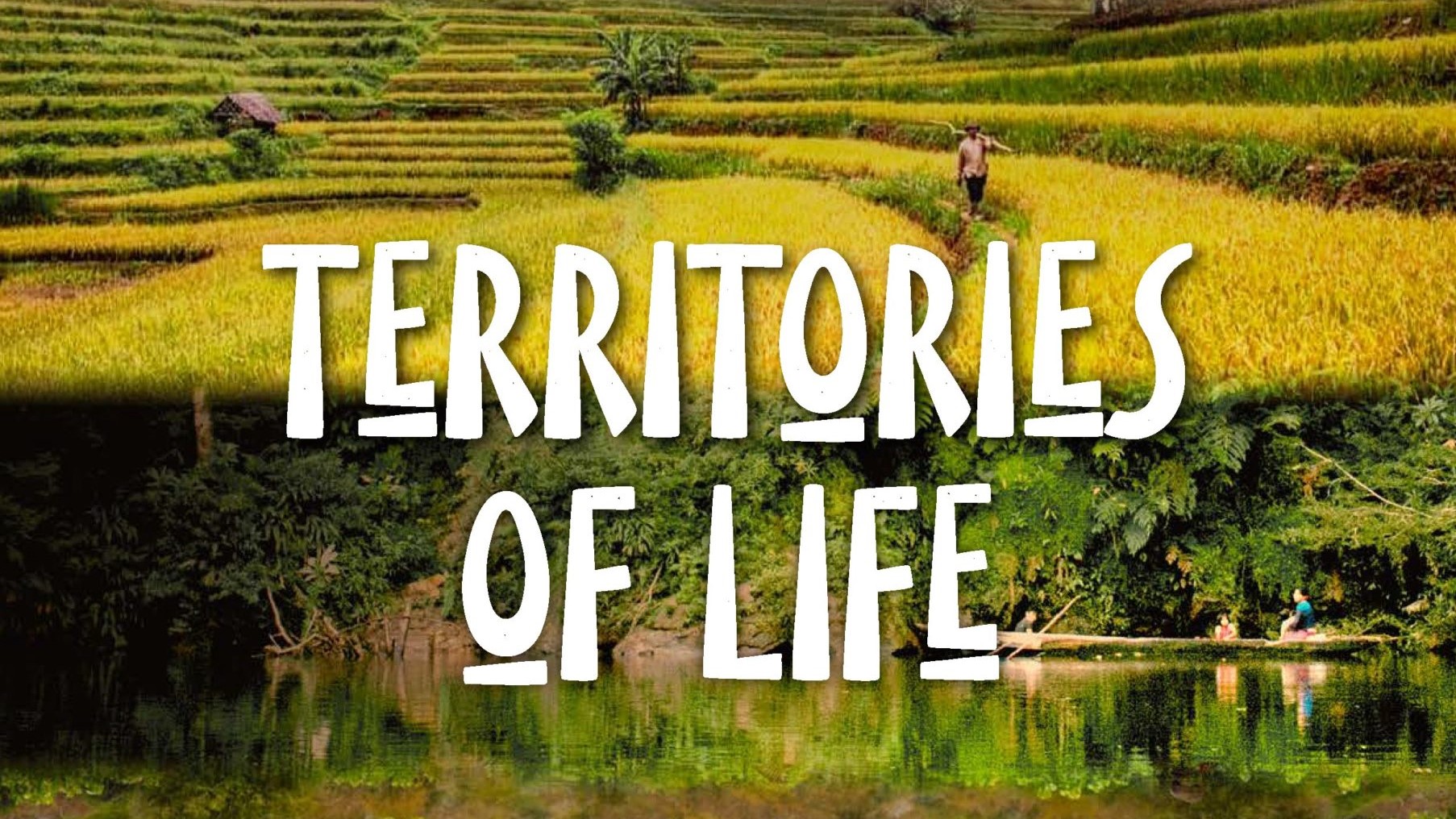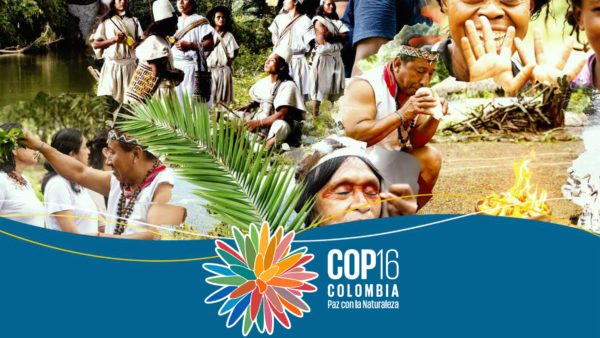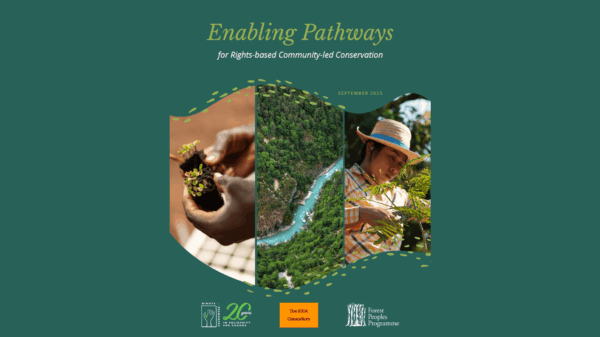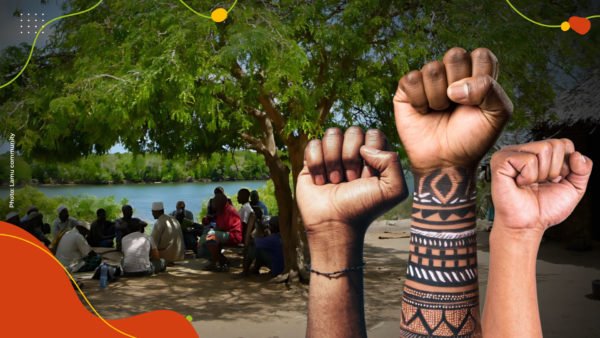ICCA Consortium’s Statement to the First Meeting of the Subsidiary Body on Article 8(j) and Other Provisions of the Convention on Biological Diversity (CBD)
First published on 10/20/2025
By ICCA Consortium
Territories of life at the heart of the Convention on Biological Diversity
Key Messages
- Shared leadership: SB8j must embed co‑chair roles and full participation of Indigenous Peoples and Local Communities.
- Rights at the core: No conservation action without Free, Prior, and Informed Consent (FPIC), tenure security, and protection of defenders.
- Knowledge justice: Recognize Indigenous Peoples and Local Communities’ knowledge systems as equal to science and uphold Indigenous data sovereignty.
- Direct financing: Create flexible funding that reaches custodians of territories of life directly.
- Measure success by impact: Progress is measured by secured territories, upheld rights, and living cultures.
Introduction
The ICCA Consortium welcomes the establishment of the Permanent Subsidiary Body on Article 8(j) and Related Provisions (SB8J) of the Convention on Biological Diversity (CBD) and its first meeting. This long‑overdue institutional space within the CBD centers the rights, knowledge, and governance of Indigenous Peoples and Local Communities. It must ensure that the Kunming–Montreal Global Biodiversity Framework (KMGBF) is advanced justly and effectively.
Rights and safeguards
All CBD actions must be grounded in the United Nations Declaration on the Rights of Indigenous Peoples and the Core Human Rights Principles for Conservation, including FPIC, non‑discrimination, accountability and remedy, multilingual participation, and protection of environmental defenders. These principles form the baseline for all recognition, planning, and implementation.
Inclusive modus operandi for SB8j
- Shared leadership: Establish co‑chair/vice‑chair arrangements and decision‑making roles for representatives of Indigenous Peoples and Local Communities, institutionalizing the active and meaningful participation of the representatives of global and regional networks of Indigenous Peoples and Local Communities.
- Resourced participation: Guarantee travel support, childcare, and interpretation to ensure equitable, multilingual participation, especially for women, youth, and elders.
- Structured linkages: Ensure SB8j inputs shape the guidance of Subsidiary Body on Scientific, Technical and Technological Advice and Subsidiary Body on Implementation, so that 8(j) perspectives are integrated across all CBD work.
Recognition of territories of life
- Legal recognition and protection: Parties must legally recognize territories of life of Indigenous Peoples and Local Communities, aligned with customary law and self‑determination, provide restitution for alienated territories, and protect them from extractivism and land or water grabbing.
- No re-labeling without consent: Prohibit re-labeling community territories as protected areas or OECMs without community decision and FPIC.
- Target 3—rights first: Areas and territories cannot count toward 30×30 without tenure security, FPIC, and rights safeguards; where territories were included without consent, and recognize rights and ensure justice.
Knowledge, indicators, and data sovereignty
Recognize Indigenous and community knowledge systems as equal, living, and dynamic, rooted in languages, spirituality, and customary governance. SB8j should establish Indigenous Peoples and Local Communities‑led knowledge mechanisms and adopt an Indigenous Peoples and Local Communities indicators package for the KMGBF, combining qualitative measures such as language vitality, cultural continuity, and governance strength with ecological metrics. Uphold Indigenous data sovereignty by endorsing CARE Principles and other protocols developed by Indigenous Peoples and Local Communities, as appropriate, and requiring FPIC for mapping, monitoring, and data sharing.
Cross‑cutting principles
- Human rights in conservation finance: Apply the Core Human Rights Principles for Conservation as minimum safeguards for all CBD financing, ensuring collective rights, FPIC, and justice.
- Gender and intersectionality: Integrate gender‑responsive and intersectional approaches, ensuring Indigenous women, youth, and gender‑diverse peoples have meaningful leadership and protection.
Financing that reaches custodians
- Direct access: Create flexible, trust‑based funding windows for Indigenous Peoples and Local Communities institutions, providing core support beyond short project cycles.
- Budget transparency: Require Parties to CBD to tag and reportIndigenous Peoples and Local Communities‑led finance in National Biodiversity Strategies and Action Plans and budgets; prioritize community governance, monitoring, and knowledge transmission.
- Enabling environment: Support Indigenous Peoples and Local Communities to control their means of production and generate local resources for self‑determined development.
Addressing global threats and protecting defenders
SB8j must explicitly address extractivism, militarization, land and water grabbing, and harmful technologies as drivers of biodiversity loss. Territories of life must be protected as spaces of justice, peace, and intergenerational continuity, with early warning, preventive measures, and access to remedy for defenders.
Concrete outcomes requested from SB8j‑1
- Adopt (for COP17 approval) an inclusive modus operandi embedding Indigenous Peoples and Local Communities co‑leadership and resourced participation.
- Recommend frameworks for legal recognition of territories of life and do‑no‑harm safeguards.
- Issue guidance making rights‑based implementation a requirement for Target 3 (30×30) of KMGBF.
- Approve an Indigenous Peoples and Local Communities‑led indicators package for monitoring of KMGBF.
- Call for direct, flexible finance and transparent reporting on Indigenous Peoples and Local Communities‑led allocations.
- Ensure benefit‑sharing from Digital Sequence Information on genetic resources equitably includes Indigenous Peoples and Local Communities.
Conclusion
Success will be measured not by negotiated paragraphs but by whether territories of life are secured, custodians supported, rights upheld, and living cultures continue to care for Earth. The ICCA Consortium stands ready to contribute experience, evidence, and solidarity from territories of life worldwide.
About ICCA Consortium
The ICCA Consortium is a global non-profit association supporting Indigenous Peoples and Local Communities governing and conserving their territories of life. Its members in more than eighty countries are undertaking collective actions at the local, national, regional, and international levels across several thematic streams, including documenting, sustaining, and defending territories of life, youth, and intergenerational relations.
As of April 2025, the Consortium is composed of 271 members (Indigenous Peoples, Local Communities, their organizations, federations, and movements; along with supporting civil society organizations and networks) and 483 honorary members (individuals closely associated with territories of life and those with experience and expertise that can support movements for recognition and support for territories of life).



